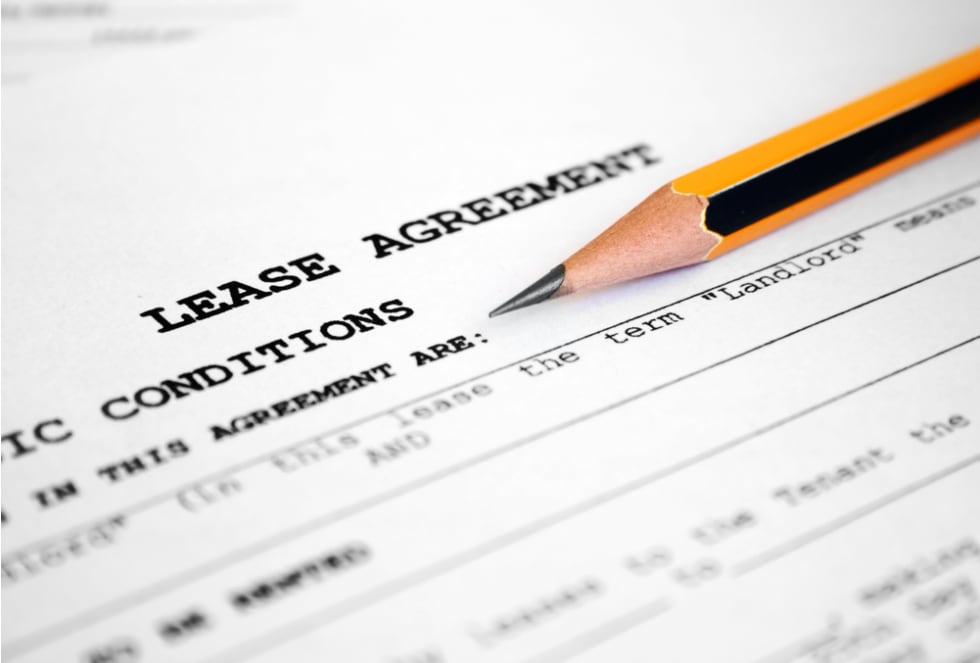How to Negotiate Lease Length (6 Steps)

It’s possible to negotiate your lease length when renting an apartment. Most people know they can negotiate rent, but many renters are unaware of negotiating lease length as a useful renting strategy designed to offer a little more flexibility for those renters with unique needs.
Negotiating lease length can help you land a comfortable and convenient living arrangement for as long as necessary. For example, you may know that you will only be living in a city for the next eight months before moving.
In this instance, signing a standard twelve-month lease requires you to sublet your apartment for the final four months or face penalties for breaking your lease early. If you are able to negotiate your lease length upfront, you can easily avoid these hassles.
If you’re in the market for a new apartment, though you need a specific lease length, we’ve got you covered. Here’s everything you need to know about negotiating lease length!
How to Negotiate Lease Length
What’s the Typical Lease Length?
Lease lengths vary greatly, though most renters find that the most commonly offered lease length is twelve months from the lease’s start date. However, it’s far from the only option on the market. Here’s a look at some of the most common lease length options.
- Month-to-month: One-month leases, more commonly known as month-to-month leases, are enacted for one month or a 30-day period. These are great options for a renter needing more time to find long-term housing. Many month-to-month rentals are furnished, so they’re usually cost-effective, too.
- Short-term: 3-6 Months: Short-term rentals are usually seasonal rentals offered to a specific demographic, such as students on summer vacation. They may also be offered by landlords who live or vacation in another location for the majority of the year. These are also common arrangements in subletting agreements.
- Long-term: 6+ Months: Most rentals are long-term lease agreements set at 12 months or more. Some landlords or property managers may offer reduced rent rates for tenants who take on a lease agreement for 12+ months.

1. Know When to Negotiate
The best time to talk to your landlord is before you sign a lease. Once you've signed, there's not much you can do to change the terms of your agreement. So be prepared to state clear terms and make signing your lease contingent on coming to an arrangement.
2. Do Your Research
The art of making a deal requires the preparation of an informed strategy. It’s not a good idea to waltz into your landlord’s office asking to negotiate your lease term without proving that it will be beneficial to your landlord. Take the time to research rent rates in your market and lease lengths. Compare this information to the offered rent and length of the rental you’re looking at.
- Market Rates for Different Lease Lengths: Search rental listings for similar properties in your area. Look for how rent prices change depending on the lease term (e.g., 6 months vs. 12 months). This will help you understand if a shorter lease typically comes with a higher rent.
- Landlord Occupancy Rates: If there are many vacant units in your building or complex, the landlord might be more open to shorter leases to fill them quickly. Conversely, in a competitive market with high occupancy, they might prioritize longer leases for stability. Check online listings or ask the property manager about current vacancy rates.
Example: "Let's say the average rent for a 1-year lease in your building is $1,200, but you find several 6-month leases for similar units at $1,300. This shows you could propose a 6-month lease at $1,300, demonstrating you're willing to pay a slight premium for a shorter term."
If you can prove that your ask is on par with the market, you have a greater chance of convincing your landlord that a shorter lease length will keep them competitive in the market.
Moreover, they may simply be impressed by the work you’ve put in to prove your point, though that’s no guarantee that they’ll approve.
3. Be Transparent with Your Reasons
Honesty is the best policy; not only in life, but in negotiating lease length. It’s important to explain why you need a custom lease length to your landlord or property manager.
Perhaps you are in the process of closing on a house in a new city or relocating for a job in a few months. Whatever your reasons, being upfront about your situation is important.
That said, your chances of getting approved will depend on how sympathetic your landlord is to your situation.
You’re unlikely to be approved if your reasoning for needing an adjusted lease length is something like, “I have no idea what I’m doing next week, let alone next year.” You’ll come off as unreliable and indecisive, which won’t win you any favor with most landlords.
4. Offer to Pay More
Landlords are in the business of making money. If a shorter lease term disrupts their income flow, they might be more receptive if you offer a slightly higher monthly rent or a larger security deposit. It's also customary for landlords to charge more for shorter leases, meaning you should expect to pay more in almost any situation. Offering an additional $100 or $200 a month could go a long way toward sweetening the deal for your landlord.
Remember, increasing your upfront cost should be weighed against the benefit of a shorter lease. This strategy might not be ideal for everyone, but it's a good option to have in your negotiation toolbox.
5. Offer Several Months of Rent Payments Up Front
One of the unintended downsides to asking for a reduced lease term is that you may come off as an unreliable tenant. However, renting is a business with the goal of making money. Prove yourself to be a good customer.
If you can prove that you’re able to cover your rent without any issues, you’re more likely to be successful when asking for a reduced term.
The best way to prove yourself to a landlord or property manager is to offer several months of rent upfront or agree to pay a higher rent rate.
Of course, this tactic puts you in a less convenient position financially, but it’s a great way to increase your chances of success.
Keep in mind that some states limit the amount of rent money a landlord can collect each month or upfront, so be sure to check your local laws before attempting this tactic.
6. Offer to Give Up Your Parking Spot
Although private parking spots may seem like an unimportant apartment amenity, they are actually very powerful bargaining chips.
This is especially true if you live in a major city with lacking parking options (think: San Francisco or New York).
Landlords and property managers may allow other tenants to purchase additional parking spaces based on availability.
If you don’t need a parking space or are comfortable parking your car elsewhere, offer to give up your space in exchange for a custom lease length.
However, this tactic will only work if a private parking space is included as a part of your lease agreement. If the apartment complex or community only offers paid parking spots, you won’t have this option.
7. Submit a Standout Application
It’s important to make a good impression when submitting an apartment application. If you are the most attractive tenant option, you’ll be more likely to be approved for the unit.
Once approved, you can move ahead with the negotiating process. So, your rental application is the best way to get your foot in the door.
Here’s a look at the essential features of a standout apartment application:
- Excellent Financial Standing: Your credit score should be well above the minimum credit score for renting an apartment (650), your monthly gross income should be well above the standard 3x the cost of rent, and you should hold a stable job. These details signal to landlords that you are able to pay your rent.
- Top-notch References: Specifically, landlord references. If you have a solid history of being a great tenant and the references to support that fact, your application will standout. Be sure to provide accurate rental history dates and contact information for previous landlords or property managers.
Of course, an apartment application will have other relevant information, but these are the two factors that will help your application catch a landlord’s attention!
How to Negotiate a Longer Term Lease
While the focus of this article is negotiating a shorter lease, there are situations where a longer lease might be advantageous for you as a tenant. Here's why you might consider it, and how to approach the negotiation:
Benefits of a Longer Lease
- Rent Stability: Landlords are often more willing to lock in a stable tenant for a longer period. This can translate to lower rent increases or even rent freezes compared to shorter leases.
- Priority Renewal: A longer lease might give you the first right of refusal when it comes time to renew. This can be valuable in competitive markets where finding a new place can be challenging.
- Move-in Concessions: Some landlords might offer incentives like waived application fees or free parking for signing a longer lease.
Negotiating a Longer Lease
- Highlight Your Reliability: Emphasize your history of on-time rent payments and responsible property care. This assures the landlord you'll be a long-term, dependable tenant.
- Be Flexible on Start/End Dates: If the landlord's ideal lease term doesn't quite align with yours, see if there's room for compromise. Perhaps you can offer a slightly longer lease with a move-in date that works for them.
- Focus on Mutually Beneficial Terms: While a longer lease benefits the landlord with stability, you can still negotiate for perks. Discuss the possibility of including pet rent discounts or additional storage space in exchange for your commitment.
- By presenting yourself as a reliable tenant and proposing a win-win scenario, you can increase your chances of securing a favorable longer lease term.
Key Takeaways
Negotiation isn’t for the faint of heart, whether you’re negotiating a custom lease term or competing on Shark Tank. In both cases, the payoff can be huge. Research, know where you stand as a prospective tenant, and argue your case as best you can — you might just land a custom lease term.
Otherwise, you can save yourself the hassle of negotiating by using Apartment List’s advanced search tools to find short-term leases in your preferred city. Either way? Good luck!
Share this Article




